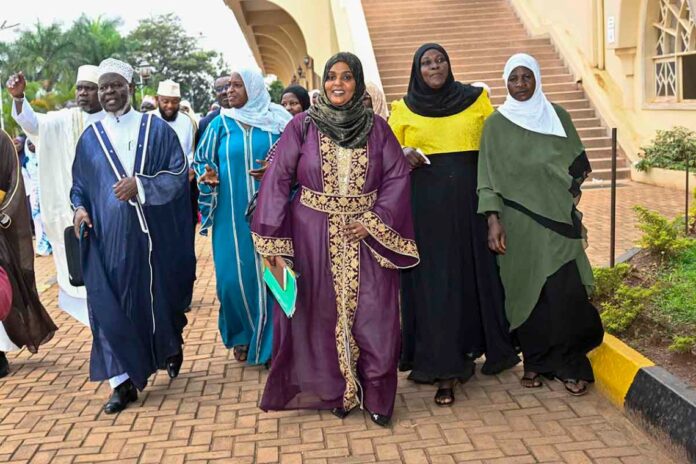Muslim women leaders have praised President Yoweri Museveni for fulfilling shs 2billion pledge, while officials cautioned against misusing the funds.
Haji Faruk Kirunda, the deputy press secretary to the president, congratulated the Uganda Muslim Women Council (UMWC) on obtaining the revolving fund.
“I thank you for waiting patiently for the fund and for being hardworking and united in your efforts towards self-improvement,” Kirunda said in a speech delivered Wednesday at a UMWC conference at the Uganda Muslim Supreme Council headquarters in Old Kampala. He was represented by Dr. Safinah Museene, a commissioner at the Ministry of Education and Sports.

Museveni first pledged the 2 billion shillings to Muslim women on Oct. 8, 2024. The pledge was fulfilled in September 2025 and handed over to leaders by State House Comptroller Jane Barekye.
Kirunda emphasized that the money is a revolving fund, not for sharing, and must be accessible to Muslim women across the country without discrimination.
The Mufti of Uganda, Sheikh Shaban Ramadhan Mubaje in a group photo with Uganda Muslim Women Council (UMWC) members during a capacity building conference for Uganda Muslim Women Council (UMWC) at Uganda Muslim Supreme Council (UMSC) Headquarters, Old Kampala on the 30th October 2025. Photo by PPU/Tony Rujuta.
“We have provided the guidelines to be used to manage the funds, and there should be no excuse for misapplying them,” he said. “All the Muslim regions, numbering 82, should access the fund. This fund should be a turning point for enhancing the welfare of Muslim women in Uganda.”

He also reaffirmed the government’s commitment to freedom of worship and urged support for the National Resistance Movement government.
The Mufti of Uganda, Sheikh Shaban Ramadhan Mubaje, cited the fund as a fruit of unity within the Muslim community.
“We are now looking into ways of developing our communities by seeing how our mothers and sisters can fight poverty,” Mubaje said. He also rallied women to reciprocate the president’s “good gesture” in future elections.
Hajjat Sofia Kenyangi Safina, the UMWC national chairperson, thanked Museveni and the Muslim leadership for including women in governance structures.

“This money is a grant from the State House, and this money is for socio-economic transformation, not for eating,” she said. “Each district is going to get a share of this money through a SACCO.”
Officials also addressed concerns about the fund’s compliance with Islamic law. Sarah Namugooya, a cooperative officer at the Kampala Capital City Authority, clarified that the 6% annual charge is a service fee for SACCO operations, not riba (interest), which is prohibited.
“Whoever is telling you that this money has riba is wrong,” Namugooya said. She and other officials trained women on SACCO governance, stressing that “without trust and transparency, a SACCO cannot go forward.”
Another KCCA official, Wilberforce Waligo, urged the women to adopt a positive mindset toward business.
“In this age and era, we should work and improve our livelihoods,” Waligo said. “You should make good use of President Museveni’s support to fight poverty and create wealth.”


